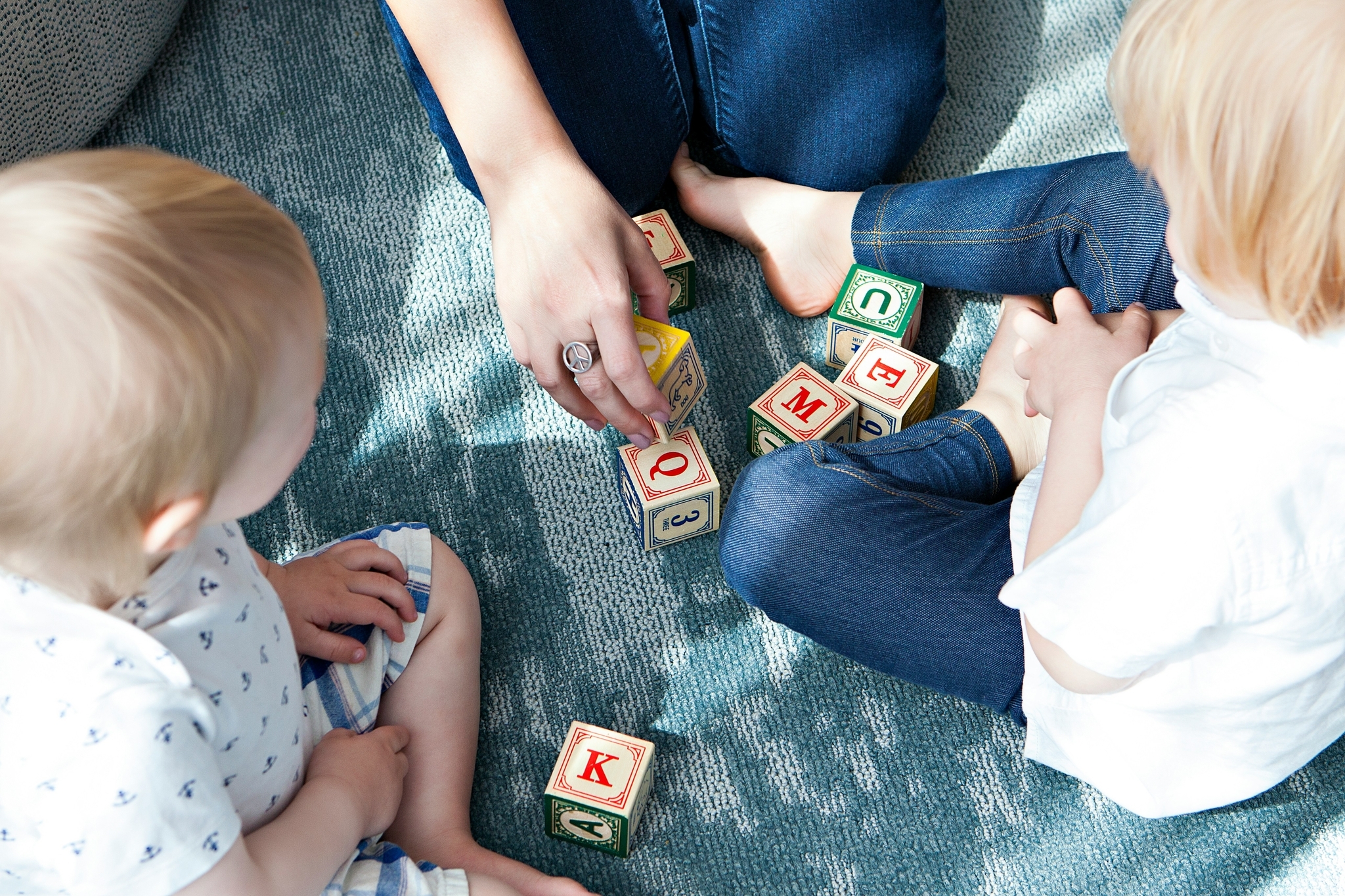14 Aug 2024
Peterborough office
48 Broadway, Peterborough Cambridgeshire, PE1 1YW
01733 346 333 01733 562 338 enquiries@hegarty.co.ukStamford office
10 Ironmonger Street, Stamford Lincolnshire, PE9 1PL
01780 752 066 01780 762 774 enquiries@hegarty.co.ukOakham office
66 South Street, Oakham Rutland, LE15 6BQ
01572 757 565 01572 720 555 enquiries@hegarty.co.ukMarket Deeping office
27a Market Place, Market Deeping, PE6 8EA
01778 230 120 01778 230 129 enquiries@hegarty.co.uk14 Aug 2024
No couple falls in love, dates for some time, gets engaged and plans a beautiful wedding only to want it to end in divorce. We all want a happily ever after, but sometimes things work out differently than the perfect picture we have in our mind, and we go through the dreaded process.
Divorce is a significant life event that marks the end of a marital relationship. While the legal complexities of divorce are often the focus, the emotional and psychological impact of ending a marriage is equally, if not more, challenging. According to a study, 28% of people experience depression following their divorce and 51% of people have increased feelings of loneliness after divorce, emphasising the lasting effects divorce can have.
Navigating this difficult period requires not only legal guidance but also emotional resilience and support.
Some couples may want to look at alternatives to the traditional divorce route, and collaborative law may provide the answer.
Collaborative law is an approach that emphasises cooperation, open communication, and allows couples more control over the outcome of their separation. It includes creating a team of professionals, including your specialist family solicitor, to help reach a solution that best suits you and your family. These other professionals, known as ‘neutrals’, can be divorce coaches or family therapists, giving you all of the support you may need during your divorce.
The Hegarty family law team have a specially trained collaborative lawyer who can guide you through the alternative approach to resolving your separation.

Divorce can trigger a wide range of emotions, including sadness, anger, fear, and relief. It's important to recognise that these feelings are natural and a part of the grieving process. The emotional stages of divorce often mirror those of grief, including denial, anger, bargaining, depression, and acceptance. Support from therapists or counsellors during the collaborative law process can be helpful in navigating the emotional challenges you may face during your divorce. Support can be offered for both the divorcing couple and any children involved.
Understanding these stages can help you navigate your emotions more effectively.
The first step in managing your emotions during a divorce is to acknowledge and accept them. Suppressing or denying your feelings can lead to increased stress and emotional turmoil. Allow yourself to feel sadness, anger, or fear without judgment. Remember that it’s okay to grieve the end of your marriage, even if the decision to divorce was mutual.
Divorce involves a grieving process similar to that experienced after a significant loss. Recognising the stages of grief—denial, anger, bargaining, depression, and acceptance—can help you understand your emotional responses. You might not experience these stages in a linear fashion, and it's common to revisit certain stages multiple times.
Anxiety is a common response to the uncertainty and changes that come with divorce. Managing anxiety effectively involves adopting strategies that promote a sense of control and calm.
Mindfulness and meditation can be powerful tools for managing anxiety. These practices help you stay grounded in the present moment and reduce the tendency to ruminate on past events or worry about the future. Simple mindfulness exercises, such as focusing on your breath or observing your surroundings without judgment, can provide immediate relief from anxiety.
During the upheaval of divorce, maintaining a regular routine can provide a sense of stability and normalcy. Stick to a consistent schedule for meals, exercise, work, and relaxation. A routine can help anchor your day and reduce feelings of chaos and unpredictability.
Identify and limit exposure to sources of stress, such as negative news, social media, or toxic relationships. While it's important to stay informed and connected, overexposure to stressors can exacerbate anxiety. Set boundaries and prioritise activities that bring you peace and joy. Stressors could also be related to financial worries around your divorce. Choosing a collaborative lawyer means you’ll have access to a range of support for this area including independent financial advisors, accountants, and tax specialists.
Through collaborative law, a group of professionals will give you access to help and support in every area you might need it, from advice on your finances and pensions, to assistance with communication through family therapists and mediators, to setting goals and discussing how to achieve them with a divorce coach. All of these professionals work together with your collaboratively trained lawyer to relieve you of some of the inevitable anxiety and stress during your divorce. Having a team around you offering advice and support covering all areas of your divorce can help reduce any anxiety or uncertainty. Another advantage of the collaborative process is that it allows couples to have more control over the outcome of their divorce. Unlike traditional divorce, by following the collaborative process couples agree and control the process including agenda, timings and venues.
Effective communication with your ex-partner is crucial during a divorce, especially if children are involved. Healthy communication can reduce conflict, facilitate cooperation, and promote a smoother transition for all parties.
Setting clear boundaries with your ex-partner is essential to maintaining respectful and productive communication. Agree on the topics that are open for discussion and those that are off-limits. Establishing boundaries helps prevent unnecessary conflicts and emotional triggers.
When discussing sensitive issues, use 'I' statements to express your feelings and needs without blaming or accusing your ex-partner. For example, say "I feel stressed when we argue about finances" instead of "You always stress me out with money issues." This approach encourages constructive dialogue and reduces defensiveness.
Keep your conversations focused on the present and future rather than rehashing past grievances. Focus on practical matters that need to be resolved, such as child custody arrangements or division of assets. Keeping discussions goal-oriented can help minimise emotional escalation.
If direct communication with your ex-partner is challenging, consider mediation. A professional mediator can facilitate discussions and help both parties reach mutually agreeable solutions. Mediation can reduce conflict and create a more amicable resolution process. As a part of collaborative law, one of the neutrals your specially trained lawyer can bring in, is a qualified and experienced mediator to help with this process.

Divorce can be an isolating experience, but you don't have to go through it alone. Seeking support from friends, family, and professionals can provide emotional relief and practical guidance.
Reach out to friends and family members who can offer a listening ear and emotional support. Surrounding yourself with loved ones who understand and care about you can provide comfort and reassurance during difficult times.
Consider joining a support group for individuals going through divorce. Sharing your experiences with others who are facing similar challenges can help you feel less isolated and provide valuable insights and coping strategies.
If you're struggling to cope with the emotional impact of divorce, consider seeking help from a mental health professional. Therapists and counsellors can offer specialised support and techniques to manage your emotions and mental health. Cognitive-behavioural therapy (CBT) and other therapeutic approaches can be particularly effective in addressing anxiety, depression, and stress. Family therapists are a part of the collaborative law ‘neutrals’ list that your legal advisor can call in if you feel it would be helpful.
Taking care of your physical, emotional, and mental well-being is crucial during a divorce. Prioritising self-care can enhance your resilience and help you navigate the challenges of this transitional period.
Maintaining your physical health can have a positive impact on your emotional well-being. Regular exercise, a balanced diet, and adequate sleep are fundamental components of self-care. Exercise, in particular, can reduce stress, improve mood, and increase energy levels, but it’s important to find what works for you as an individual.
Make time for activities that bring you joy and fulfilment. Whether it's pursuing a hobby, spending time in nature, or practising a creative art, engaging in enjoyable activities can provide a much-needed respite from the stress of divorce.
Be kind to yourself during this challenging time. Acknowledge your efforts and progress and avoid self-criticism. Practising self-compassion involves treating yourself with the same kindness and understanding that you would offer to a friend in a similar situation.
While divorce marks the end of one chapter, it also opens the door to new beginnings. Focusing on building a positive future can help you move forward with hope and confidence.
During divorce it is important to seek advice from experts to ensure you plan for the future financially. Ensuring your financial arrangements are set out or a clean-break order is in place will ensure you are protected for the future. Guidance from an actuary (also known as a pensions on divorce expert) can help to ensure that the positive future you are building is financially secure. It is also important to update your will following a divorce to ensure that your wishes and new circumstances are reflected.
Take time to reflect on your personal goals and aspirations. Setting new goals can provide a sense of purpose and direction. Whether it's pursuing a career change, furthering your education, or exploring new interests, setting, and working towards goals can be empowering.
Embracing change and viewing it as an opportunity for growth can help you navigate the transition more positively. Change can be challenging, but it also brings the potential for new experiences, relationships, and personal development.
Resilience is the ability to adapt and thrive in the face of adversity. Cultivating resilience involves developing coping skills, maintaining a positive outlook, and seeking support when needed. Building resilience can help you bounce back from the challenges of divorce and emerge stronger.

If you have children, their well-being is likely a top priority. Managing the emotional and psychological impact of divorce on children requires thoughtful communication and support.
When making the arrangements for children during a divorce, it is important to be willing to negotiate and come to an agreement. If both parties agree a proposal, it is more likely to work than if one party is not happy. Our experienced team of family lawyers can support you to come to an agreement.
Wherever possible we would advise that it is best if you and your partner can come to a private arrangement regarding your children rather than involving the Courts. This helps to protect your children from unnecessary upset. We can offer help and advice about alternatives to court and support you along the way to ensure that the outcome takes into account the best interests of your children.
Communicate openly and honestly with your children about the divorce. Use age-appropriate language and reassure them that the divorce is not their fault. Minors aged between seven and 14 at the time of a divorce exhibit a 16% rise in emotional problems, such as anxiety and depressive symptoms, and an 8% increase in conduct disorders. It’s important to pay attention to your child’s response to the divorce and provide them with opportunities to express their feelings and ask questions.
Maintaining routine and stability is crucial for helping children cope with the changes brought by divorce. Consistent schedules for meals, school, and activities provide a sense of security and predictability. Recently there has been increasing numbers of parents choosing to follow the ‘birdnesting’ approach which is a living arrangement where children stay in the family home and spend time with each parent there. However, this approach requires careful consideration so that the arrangement doesn’t prejudice your property and financial claims when you come to divorce. Find out more about the ‘birdnesting’ approach here.
Strive to co-parent cooperatively with your ex-partner. Avoid involving children in conflicts and ensure that both parents remain actively involved in their lives. Cooperative co-parenting promotes a healthier adjustment for children and reduces their stress. There are several methods of co-parenting, and your lawyer can offer advice to help you to make the best decision for your family ensuring that it is legally secure for the future. Some parents choose to use a co-parenting app to help manage schedules, we discuss the benefits of this in our article ‘Co-parenting apps | What are the pros and cons.’
Consider seeking professional support for your children if they are struggling to cope with the divorce. Child therapists and counsellors can provide a safe space for them to process their emotions and develop healthy coping strategies, and through a collaboratively trained lawyer, a local professional can be called upon to help support you and your family.
Divorce is a multifaceted experience that encompasses both legal and emotional challenges. Remember, you don't have to go through this process alone. Reach out to experienced family lawyers who focus on offering the support you need, also friends, family, support groups, and mental health professionals to build a strong support network. With time, patience, and self-compassion, you can emerge from this difficult period stronger and ready to embrace new opportunities.
If you need advice on the best way to proceed with divorce, contact Hegarty, our expert legal team is ready to help you with the empathy and support needed.
Whatever legal support you need, our experienced and highly skilled solicitors and legal advisors are here to help. With expertise across a wide range of legal areas, we provide clear, practical advice tailored to you. What sets us apart is our commitment to understanding your needs and delivering the best possible outcome with a personal touch.